9 Meaningful Things You Should Never Throw Away After a Funeral

Losing someone you love is one of the most difficult experiences in life. Funerals are often overwhelming, filled with tears, heartfelt words, and small gestures meant to honor a life. When the service ends, it is tempting to pack up the items, discard the flowers, and move on. Yet some things from that day carry deep emotional value. They are tangible reminders of a life lived, a personality cherished, and memories that continue to shape you. Holding onto these items is not about clinging to the past, but about creating a bridge to remember and honor your loved one in a meaningful way.
Here are nine meaningful things you should never throw away after a funeral, along with guidance on how to preserve them for comfort and remembrance.
1. Funeral Program or Order of Service
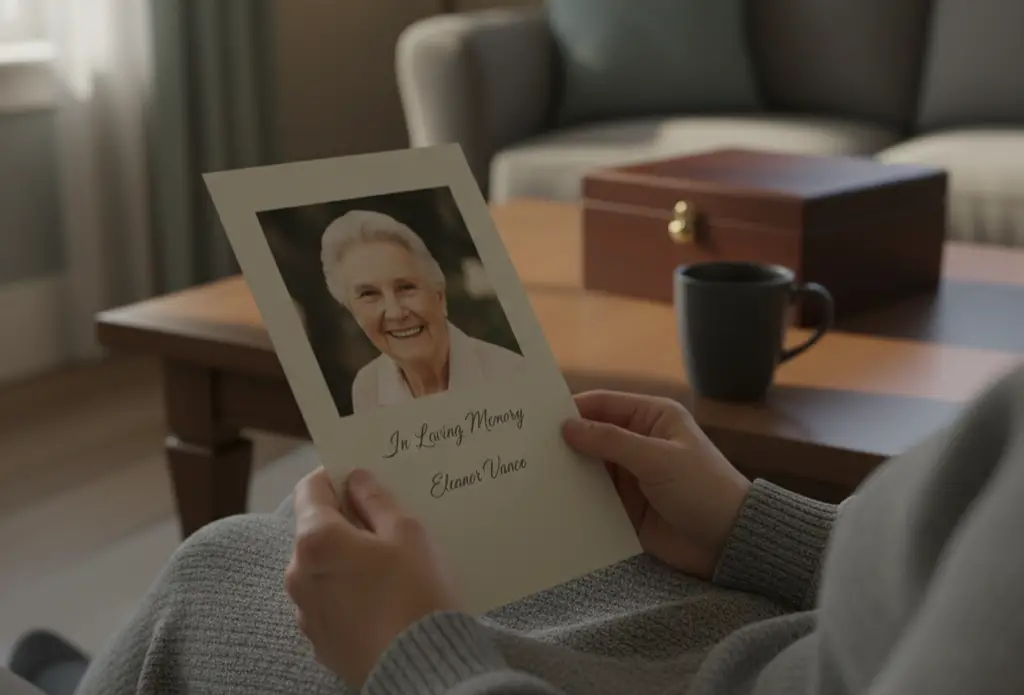
The small pamphlet handed to you at the service may seem like a simple keepsake, but it is a record of how your loved one was remembered publicly. It contains names, dates, and perhaps even favorite quotes or photographs. Years from now, when the details of the service fade, the program will serve as a snapshot of the day, reminding you of the people who spoke, the music played, and the moments shared. You can keep it in a folder, scrapbook, or memory box, preserving a tangible connection to the ceremony.
2. Condolence Cards and Notes

Handwritten messages from friends, family, or colleagues may feel overwhelming in the immediate aftermath, but they are treasures. Condolence cards reflect how others came together to support you and share their memories of the person who passed. Reading them months or years later can offer comfort and a sense of connection to the community that surrounded your loved one. Instead of tossing them once you have read them, organize them in a binder or keepsake box to revisit when you need reassurance or a gentle reminder of the love that was shared.
3. A Favorite Photograph Used in the Service
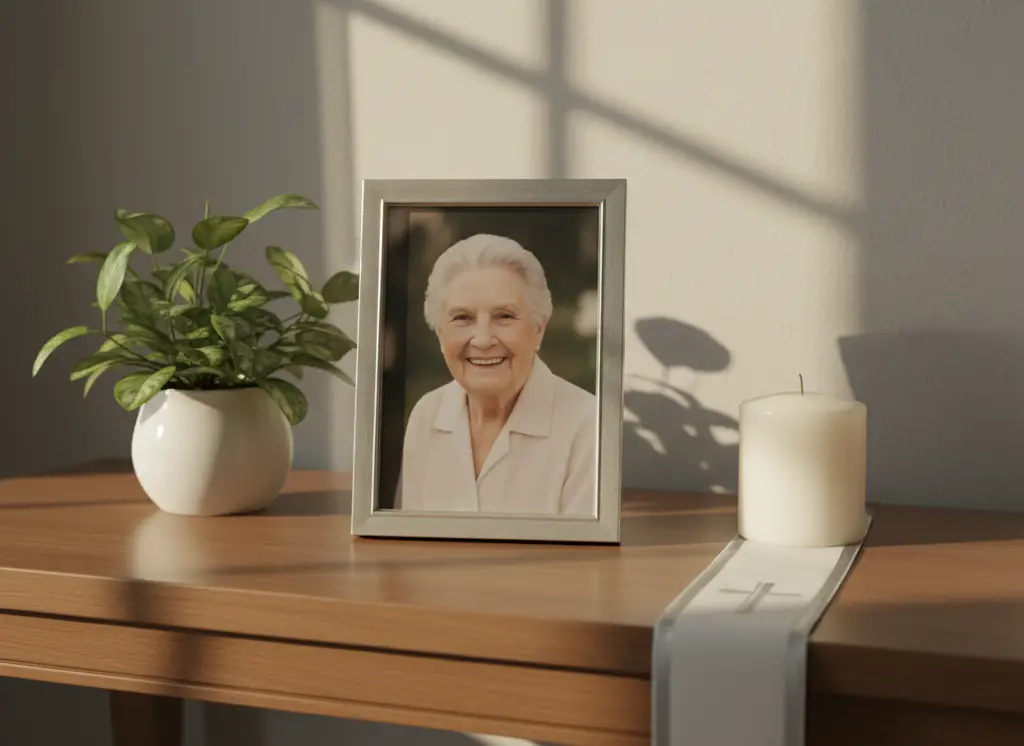
Photographs displayed during the service are often chosen to represent the life and personality of your loved one. These images are more than just pictures; they are symbols of the joy, laughter, and moments that defined them. Keeping a photo from the service allows you to create a memory corner at home, a framed tribute, or even a memory book. It can serve as a touchstone on days when you want to remember their presence without sifting through countless albums.
4. A Piece of Clothing or Accessory They Wore Often

Whether it was a scarf, jacket, watch, shoes, or a tie, a piece of clothing your loved one wore often can be a powerful reminder of them. These items carry a physical connection to their everyday life and personality. You can store the item in a memory box, frame it, or even transform it into a meaningful keepsake like a small quilt or pillow. Holding onto such items allows you to honor their memory while keeping a tangible piece of them close.
5. Favorite Books, Poems, or Music

Many people have special books, poems, or pieces of music that hold significance in their lives. Keeping a favorite book or poem allows you to revisit their thoughts, humor, or wisdom. Music, too, can evoke powerful memories, transporting you to moments you shared. Whether it is a worn copy of a beloved novel, a handwritten poem, or a playlist they loved, these items help preserve the essence of your loved one’s personality and passions.
6. Personal Items with Their Handwriting
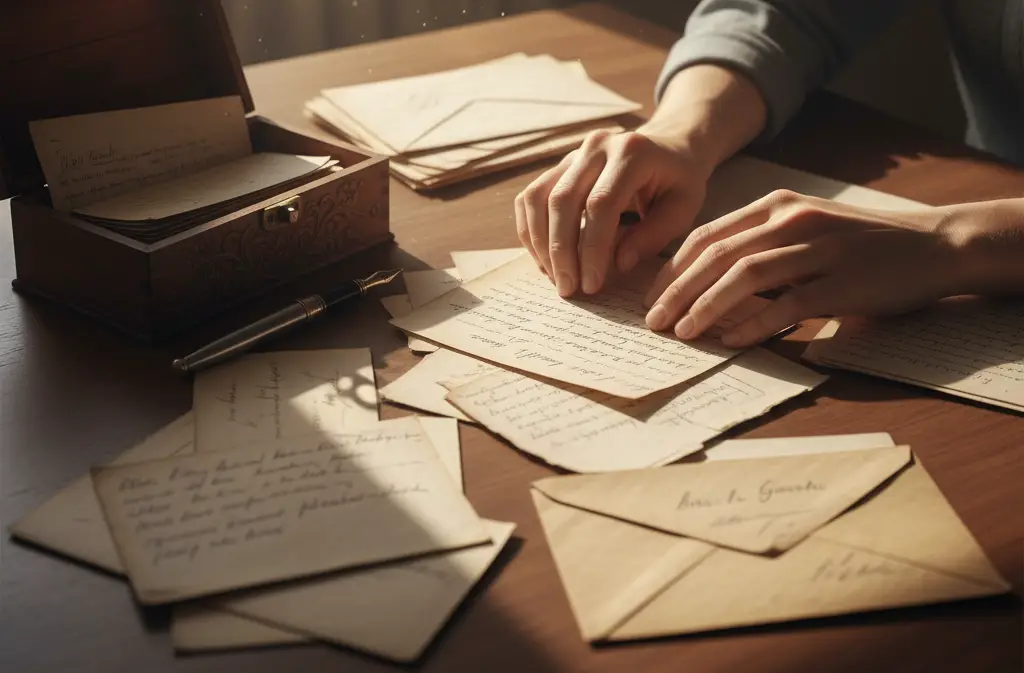
Handwritten letters, cards, or notes are among the most meaningful keepsakes. Seeing a loved one’s handwriting can evoke powerful emotions and memories, offering comfort and connection. These items are deeply personal and allow you to hold a piece of their presence in your hands. Store them in protective sleeves or a memory box to preserve them for future reflection. They are small reminders of a voice, thoughts, or love that continues to exist even after someone has passed.
7. Jewelry or Accessories with Emotional Significance
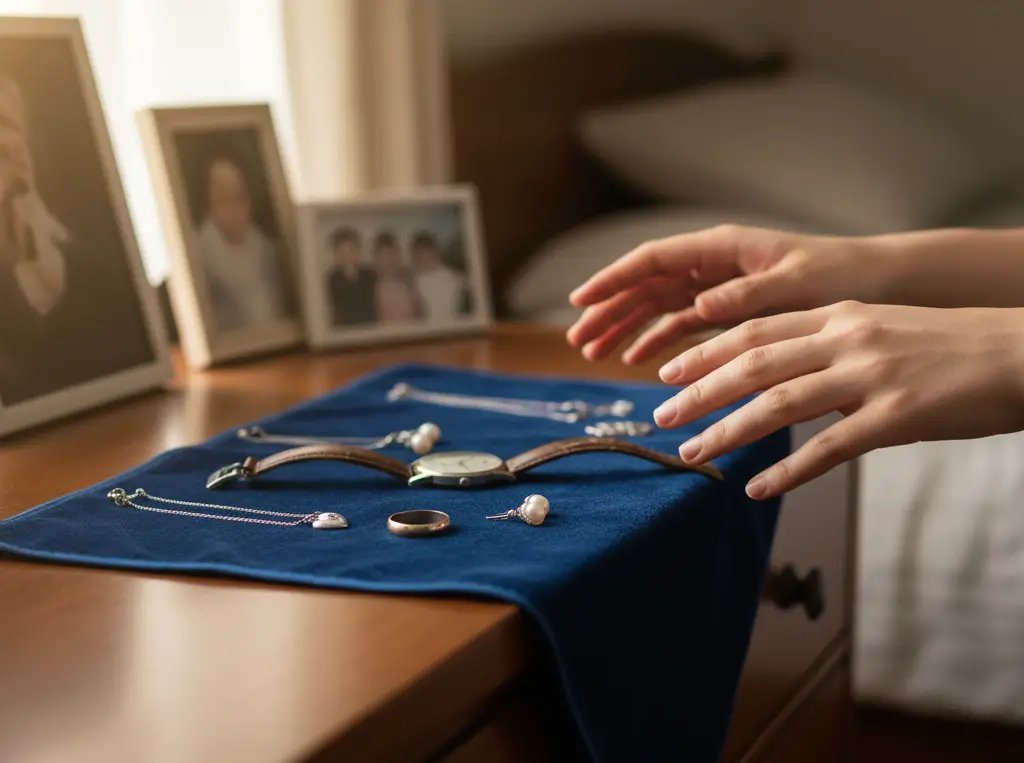
Jewelry or accessories given or left behind by a loved one can be incredibly meaningful. These items are often passed down intentionally, creating a tangible link to family history and memories. A ring, watch, necklace, or charm can be kept in a safe place, worn occasionally, or even prepared as an heirloom for the next generation. Preserving these items allows you to carry the memory and spirit of your loved one close to you in a very personal way.
8. Memory Box Items from the Service
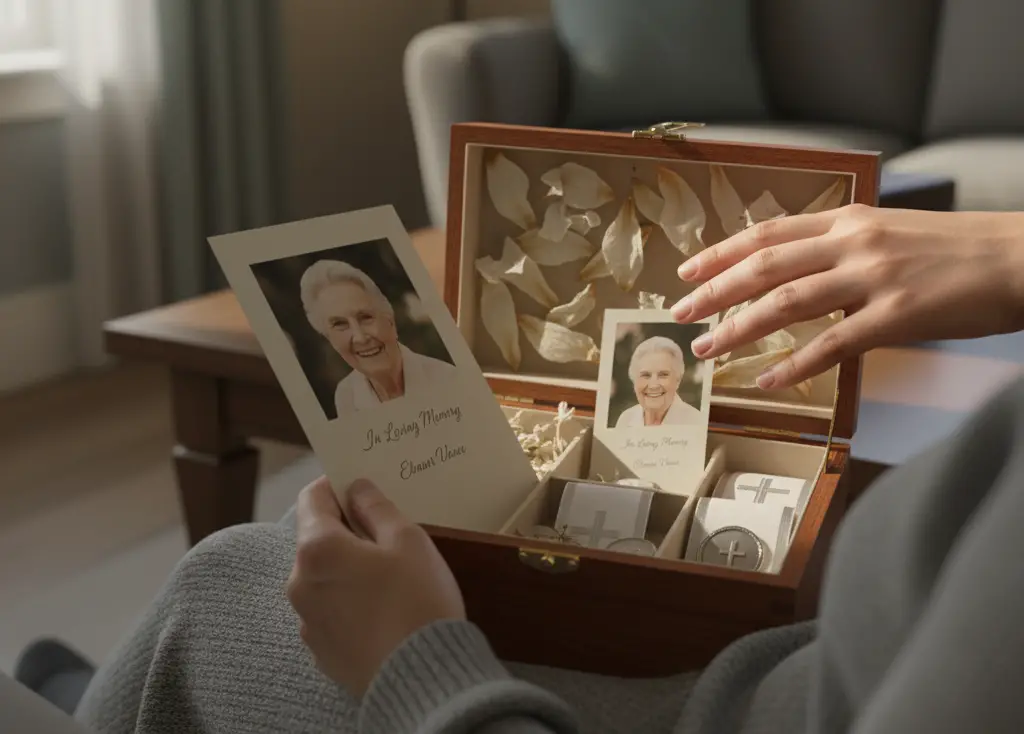
Funerals often leave behind small items such as flower petals, ribbons, pins, or mementos given to guests. Instead of discarding these, collect them in a memory box. These seemingly insignificant items gain significance over time as reminders of the day and the love shared. Creating a memory box allows you to engage with your grief in a controlled and comforting way, revisiting memories whenever you need to without feeling pressured to “move on” quickly.
9. Personal Messages or Letters They Prepared
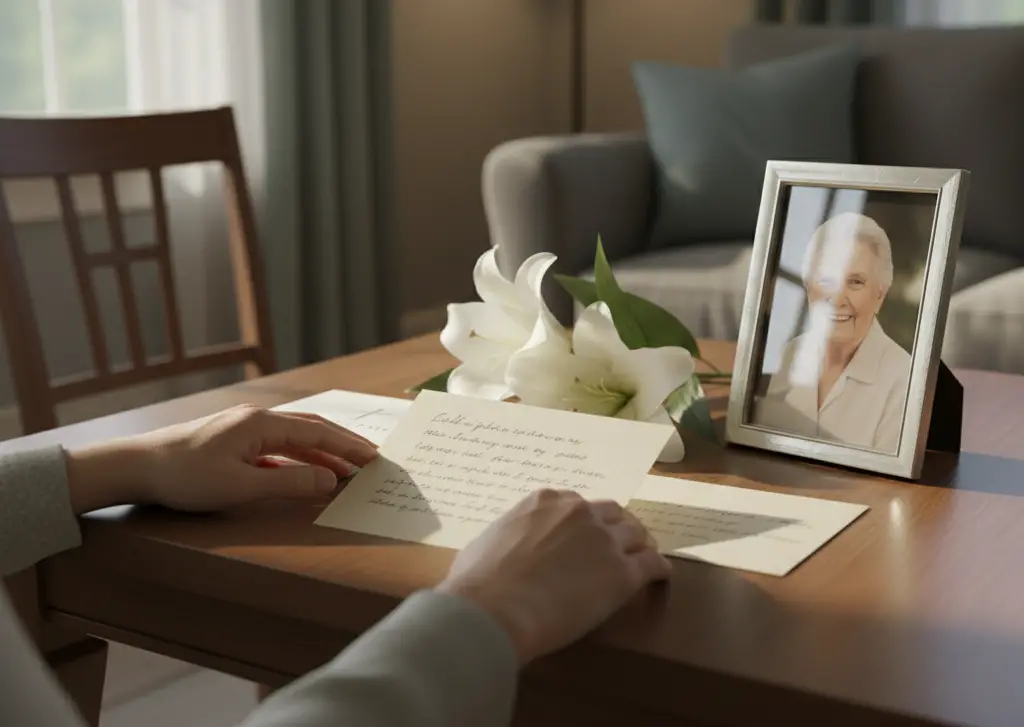
Some people leave behind personal messages, letters, or recordings expressing their thoughts, love, or wishes. These messages are deeply meaningful and can provide ongoing comfort. They allow you to hear their voice, read their words, and feel a connection even after their passing. Keeping these personal messages is not about clinging to the past but preserving a source of guidance, love, and connection that can continue to enrich your life.
Final Thoughts

Grief is a journey that cannot be rushed, and keeping meaningful items after a funeral is a way to navigate that journey with intention and care. The nine items listed here are not about holding on to the past in a way that prevents healing. Instead, they are tools to honor your loved one, to celebrate their life, and to carry forward memories that can bring comfort in both big and small ways.
Store these items in a safe and organized manner, whether in a keepsake box, scrapbook, or special drawer. Revisit them when you feel ready, allowing them to serve as gentle reminders of the person you loved. Let these items provide connection, comfort, and joy in moments when you need it most. Over time, these keepsakes can become treasured heirlooms, passing your loved one’s memory to future generations.
Holding onto these items is not a sign of weakness but a celebration of love, life, and the connections that endure beyond the farewell. They allow you to remember well and to keep a part of the person you lost alive in your heart.
Leave a Reply